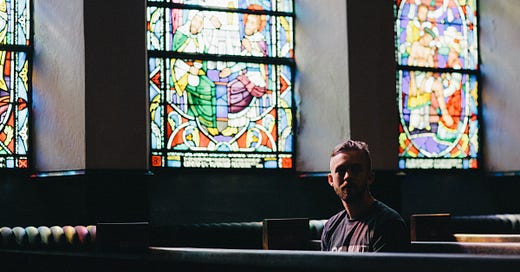The Manosphere’s Biggest Problem? Christianity.
Oppression/societal retreat are incompatible with a Christian view of manliness.
I really didn’t want to write two posts on Andrew Tate, and yet this topic seems to always elicit further thoughts after writing. It’s perhaps unsurprising that some of my most-read posts are about issues facing young men (yeah, really), but it’s also quite regrettable that there’s so much source material. As per our Friday arrangement, this’ll be a short one but hopefully an interesting one. We’ve talked about why young men become radical and talked through why Andrew Tate-ism isn’t the answer, but I think there’s more to this than that.
The world of philosophically misguided masculinity influencers doesn’t exist in a vacuum—it’s guided by the spirit of the age as much as any other cultural movement, including other movements that right-leaning people tend to criticize a lot more. Yet, that doesn’t mean that they’re any further off the mark. The failings of both the Tate-ish and MGTOW fringes of the manosphere movement are far more religious than many are inclined to realize.
That’s a big sentence, and one with at least 2 very Niche Internet Terms—so let’s start with defining those. We’ve talked about the manosphere before, a group dedicated to creating a male response to what is viewed as the excessive social focus on the rights and fates of women and girls. This can range from the admirable desires of men’s rights researchers to rectify flagging education and social performance levels among young men to the decidedly-less-awesome world of pickup artists, a cadre of alleged psychology experts dedicated to teaching men that personal fulfillment is to be found in the number of women one can manipulate into sleeping with you. It’s a big group—depending on who you ask, this thing stretches from Jordan Peterson to Andrew Tate to Bronze Age Pervert to a world of niche YouTubers and neckbearded members of the Twittering class.
One of the better-known factions in this group is called MGTOW (Men Going Their Own Way), a group believing that society is systemically prejudiced against men and that the only viable response strategy is disassociation. Fighting this allegedly ‘gynocratic’ system requires not only a rejection of traditional norms of marriage (in MGTOW’s view, a source of oppression for men in a female-dominated society) but eventually a full-scale withdrawal from social presence altogether, employment included. Basically, it’s a grand, largely online, pseudo-intellectual theory designed to show how sitting on your couch playing video games is actually a Super Serious Philosophical Choice (the white man’s burden, perhaps).
Standing athwart these bastardized iterations of masculinity is Christianity, a faith teaching that both oppression and perpetual societal retreat are incompatible with the obligation of the human person. And as much as the sadistic side of me wants all my enemies to take part (“You mean I can convince all my enemies to play God of War in their parents’ basements as I out-earn them?”), MGTOW isn’t a good thing. Men and boys are both called to and capable of accomplishing a higher mission than perpetually playing Call of Duty in a parent’s basement.
At the end of the day, there’s very little spiritual difference between the most extreme denunciations of masculinity as the source of all social ills and the MGTOW call for men to take themselves out of the equation. It’s escapism at its less-than-finest—and a violation of the call to live with excellence.
The MGTOW philosophy is certainly an understandable one—navigating modern theories of masculinity is not merely difficult but can carry massive social consequences if done wrong. But it’s not the answer—living to manipulate, dominate, or retreat from others are answers that fall radically short of the masculine responsibility to live for others. For young men seeking to live a life of satisfaction, vocation, and happiness, that’s the hardest path possible. And yet so often it’s the best one.




